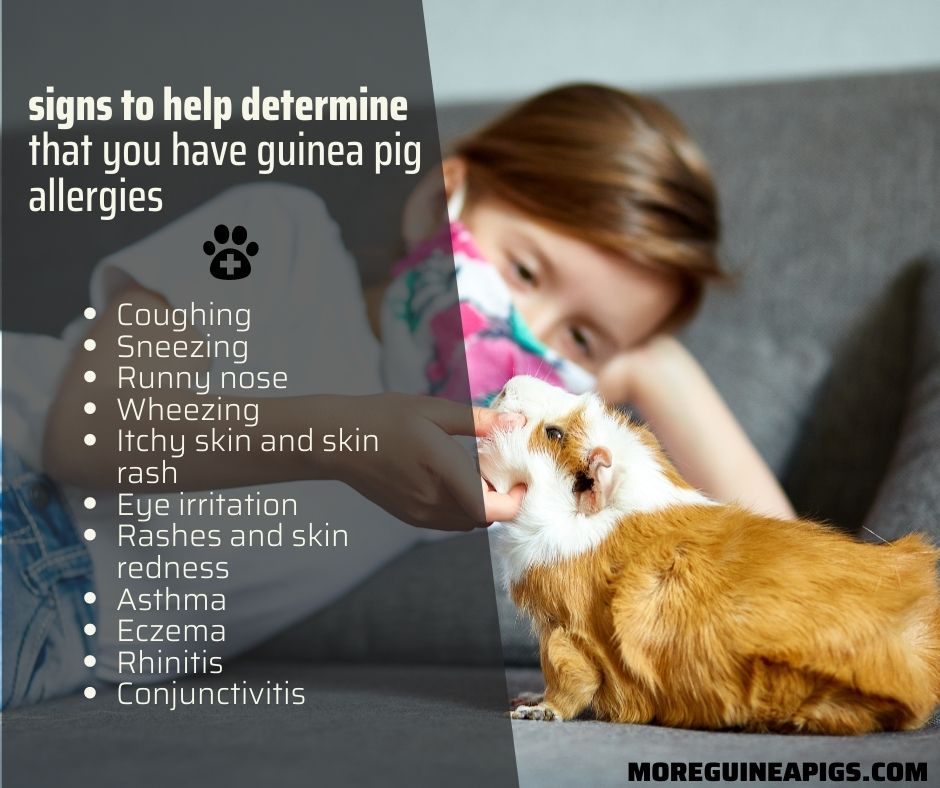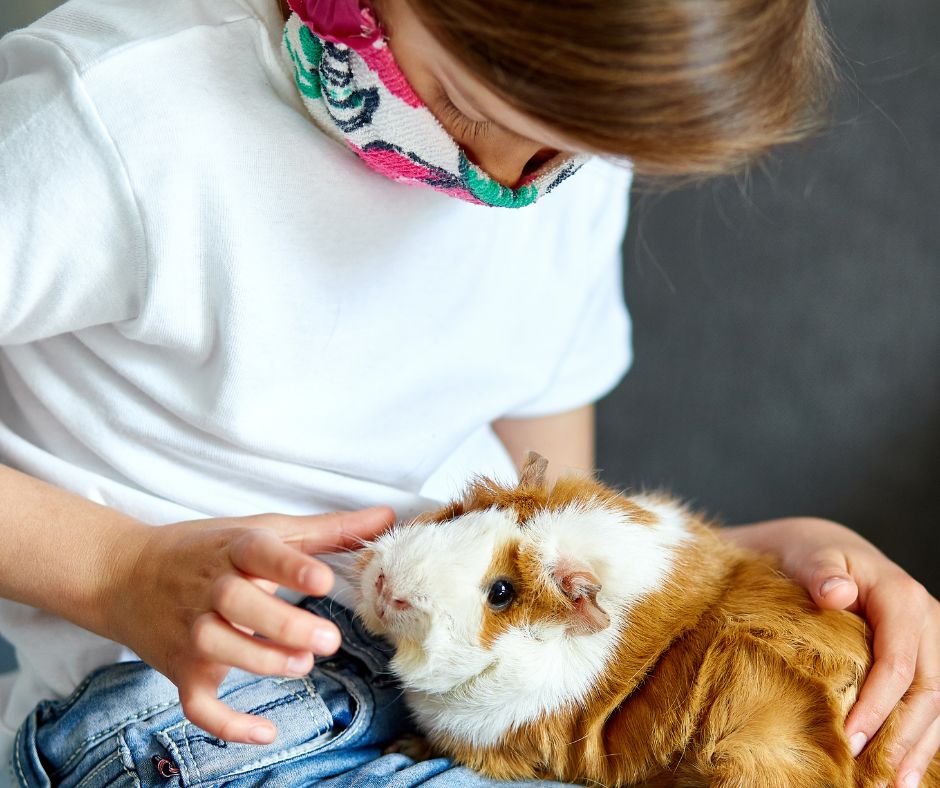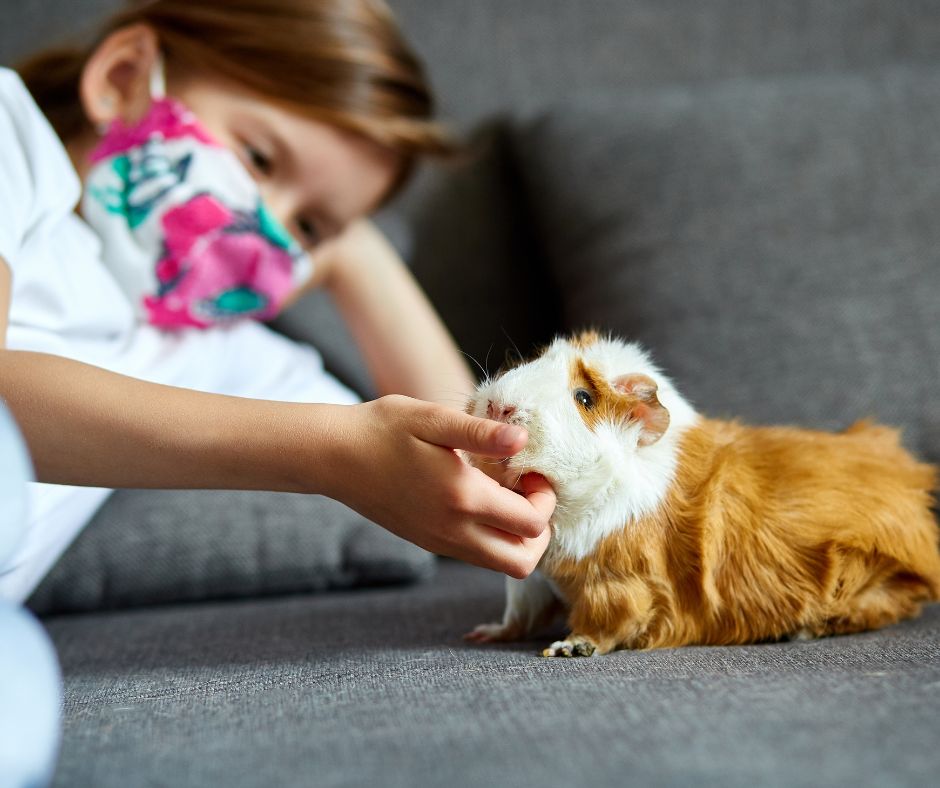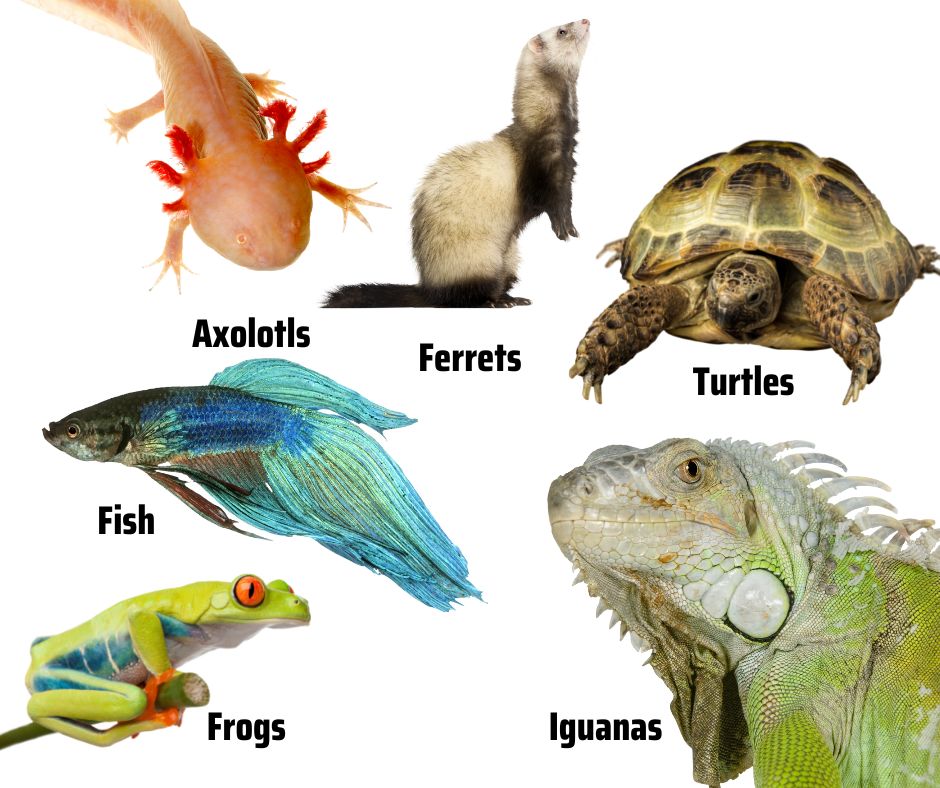Are Guinea Pigs Hypoallergenic?
As a beginner pet owner, you may be wondering about getting a pet, but you are not quite sure whether you are allergic to a pet or not. This is why you must know everything about a pet before you decide to buy one.
Guinea pigs are not hypoallergenic creatures like most warm-blooded animals with hair, fur, or feathers. This means they can cause an allergic reaction to humans, and you should be concerned if you are a sensitive person.
In this article, we will help highlight everything you need to know about whether guinea pigs are hypoallergenic, from what is hypoallergenic to how you can live with hypoallergenic species without any problem.
What Is Hypoallergenic?
Hypoallergenic is a term used to describe when something is free from allergens or cannot cause an allergic reaction to human beings. However, there are no set standards to determine whether something is hypoallergenic or not.

Are Guinea Pigs Hypoallergenic?
No, guinea pigs are not hypoallergenic species as no warm-blooded animal is completely considered hypoallergenic.
Although the hair density of guinea pigs is not like conventional pets like cats and dogs, guinea pigs also release proteins that cause allergies from their urine, hair, and skin cells.
However, they are a safer pet option for allergy sufferers because their living conditions can easily help contain the allergens, unlike when living with a larger pet.
Is It Common to Be Allergic to Guinea Pigs?
It is quite rare for people to be allergic to guinea pigs. However, people with a family history of asthma or hypersensitivity are likely to be allergic to guinea pigs.
Many people suffering from allergic reactions usually believe that this happens because of guinea pigs. But there are situations where the allergens may be from the hay or wood shavings around them.
How to Tell if You Have Guinea Pig Allergies?

Generally, allergy reactions usually occur when the immune system in our body recognizes that a substance is harmful to the body.
Once the immune cells notice that the allergens enter our body, they will help get rid of them, causing allergy reactions.
Some of the signs to help determine that you have guinea pig allergies are stated below:
- Coughing
- Sneezing
- Runny nose
- Wheezing
- Itchy skin and skin rash
- Eye irritation
- Rashes and skin redness
- Asthma
- Eczema
- Rhinitis
- Conjunctivitis
Note: allergic reactions usually range from mild to severe cases. You can easily treat mild cases with medicines you buy from pharmacists or other ways. However, you may need to consult your doctor as fast as possible if it is a severe case.
Some of the signs that an allergic reaction is severe are low pulse, experiencing shortness of breath, airway constrictions, and dizziness.
These are signs that you have anaphylactic shock, which is a life-threatening response to allergens and needs immediate medical attention.
You should try to go to the emergency room directly once you notice the signs of anaphylactic shock.
7 Tips to Deal with Guinea Pig Allergies
There are situations where you may notice that you have guinea pig allergies after you have already bought your guinea pigs.
You may need to find a new home for your cavy if this is your case. However, you may feel attached to your piggies and don’t want to let it go.
There are lots of pet owners who deal with their allergies instead of giving out their guinea pigs. This shows there are several ways that you can deal with guinea pig allergies to make a living with them bearable.
Some of the ways to deal with guinea pig allergies are stated below.

Keep Your Guinea Pig and Their Cage Clean
Since allergens can stick to different parts of your cavy’s cage and rooms, you are keeping them. A good way to deal with the allergens is to regularly clean the cage.
This will help to reduce the situation where you touch or inhale the proteins triggering the allergy.
You can thoroughly clean your guinea pig cages at least once a week and frequently change their soiled beddings.
You should also clean the room where the guinea pig lives regularly, such as disinfecting the curtains, vacuuming the room to remove allergens on the floor, etc.
Install a H.E.P.A. Air Purifier
Another way that you can eliminate allergens is by installing an air purifier with high-efficiency particulate (H.E.P.A.) air filters. A H.E.P.A. air purifier will help pet owners to remove allergens and airborne particles in the air.
This will then help to reduce allergic reactions and several respiratory problems.
Avoid Touching Guinea Pig Directly
It is also easier to manage guinea pig allergies if you avoid touching them. However, if there are situations where you need to touch them, you should avoid touching them directly.
You can simply use a blanket, cozie, or protective gear like masks, gloves when touching them.
You should also use a glove, and masks and wear long sleeves to help protect your skin whenever you are handling your cavy or cleaning their cage.
Wash Your Hands After Exposure to Guinea Pig

It is important that you maintain clean hygiene when dealing with your guinea pigs. You need to wash your hands before and after handling and cleaning your cavy.
This will help deal with allergens and ensure you don’t contract allergens from saliva, dried urine, or dander.
It is recommended that you wash your hand for about 20 seconds with soap and water before and after you come in contact with your guinea pig. You can also consider showering after handling your guinea pig to deal with the allergens.
Get Some Help from Non-Allergic
Another option is to ask someone in your house that is non-allergic to guinea pigs to help do chores like cleaning their cage. This will help to ensure that the allergens do not build over time, and you will not have to interact with the guinea pig.
Note: guinea pigs are social creatures and love interaction very much. This means you will need to provide lots of enrichment and stimulation in their cage to keep them active and happy without interacting with you.
Use Some Medication
There are several medications that you can take to manage guinea pig allergies. Some of the common medications used by guinea pig owners are:
Decongestants: These are medicines that help in getting rid of stuffy noses. A guinea pig owner can use nasal spray decongestants if they are experiencing nasal inflammation.
Antihistamines: These medicines help in stopping allergies and reducing allergy symptoms.
Allergy shots: Allergy shots will help to reduce allergies symptoms.
Note: it is best that you consult with your doctor or allergist before you decide to self-medicate. Your doctor will help determine how severe your allergy is and the best medications you should take.
Amazon Basic Care All Day Allergy, Cetirizine Hydrochloride Tablets, 10 mg, Antihistamine, 300 Count
Consider Locating Guinea Pig Cage Outdoors
A great way to prevent allergens from spreading all over your place is by housing your guinea pig cage outdoors. All you have to do is ensure you keep your guinea pig in a cool and dry place and provide the ideal temperature for them.
You can also decide to store your guinea pig’s hay or bedding outside if you notice that you are allergic to them.
What Is The Best Pet for Someone With Allergies?
Choosing a hypoallergenic pet usually depends on how severe your allergies are and whether you are ready to tolerate your pet. However, there are pets that are hypoallergenic that you can opt for if you have severe allergies.
Some of them are:
- Frogs
- Iguanas
- Turtles
- Axolotls
- Fish
- Ferrets
- Lower-dander birds such as canaries and parakeets
- Lower-dander cat breeds such as Devon Rex, Sphinx, Cornish Rex, etc.
- Lower-dander and low shedding dog breeds like Poodles, Soft-coated Wheaten Terriers, Bichons, Portuguese Water Dogs, etc.

Summary
Guinea pigs are not hypoallergenic and are not suitable for people suffering from allergic reactions.
It is best to visit a pet store or visit friends with guinea pigs to help spend time with the guinea pig to help determine if you are allergic to guinea pigs as a beginner.
However, it is easier to deal with allergens from guinea pigs than larger pets like cats and dogs. You can write to us in the comment section below if you have any comments or experience living with guinea pigs as an allergic person.







